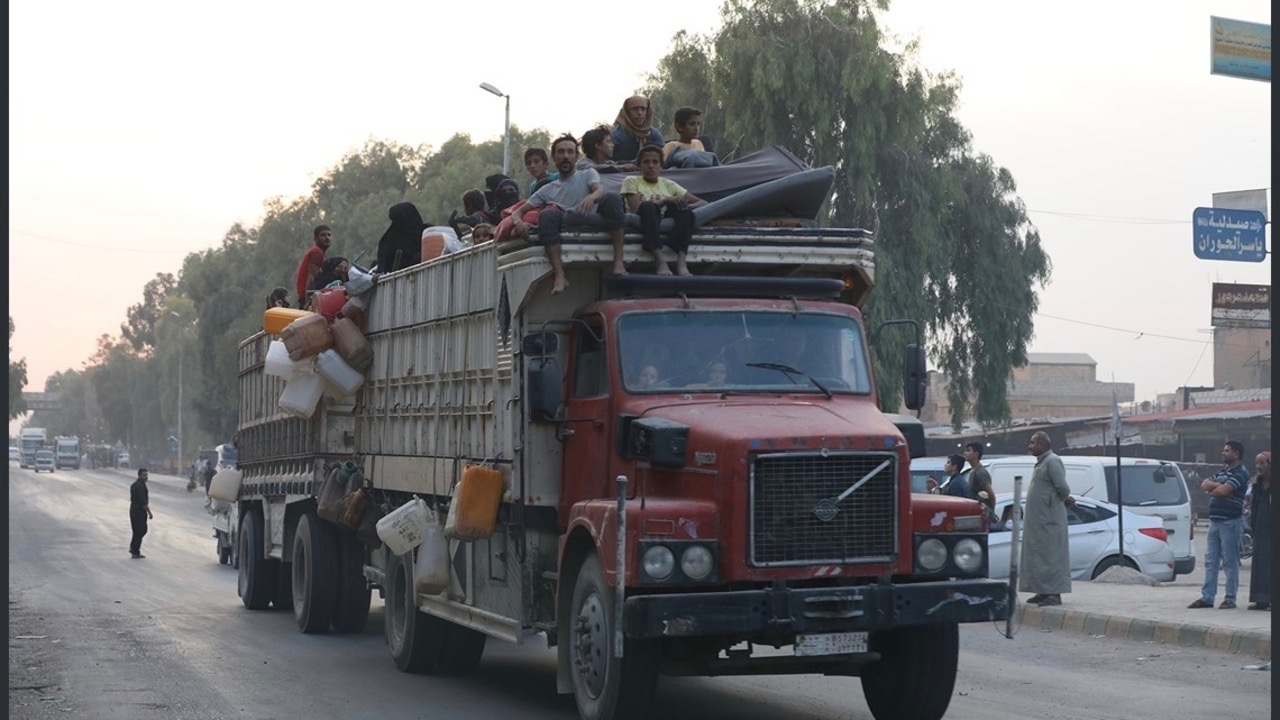The Kurdish-dominated Syrian Democratic Forces (SDF) have blamed US president Donald Trump for encouraging Turkish attempts at ethnic elimination of the Kurdish population. Meanwhile, Trump asserted that the ‘ceasefire’ deal with Turkey, signed on October 17, is working well.
Trump claimed in a tweet on October 20 that “new areas [are] being resettled with Kurds” and “we have secured the oil.” The Kurdish Autonomous Administration of North and East Syria (Rojava) responded on its official Facebook page, saying that the statement amounted to Turkey receiving a go-ahead for the ethnic cleansing of the Kurds in the region.
The ‘ceasefire’ deal was signed between the US and Turkey after vice-president Mike Pence visited Ankara on October 17, and held discussions with Turkish president Recep Tayyip Erdogan. According to the deal, Turkey agreed to “halt” its offensive in north-east Syria for 120 hours, or roughly five days, to give the SDF a chance to withdraw from the region, which Turkey wants to convert into a “safe zone”. The deal also led to the withdrawal of the recent sanctions imposed on Turkey by the US.
Additionally, it talks about the People’s Protection Unit (YPG) surrendering all its heavy weapons to Turkey. As per the deal, the Turks will oversee the enforcement of the “safe zone” inside Syria.
Though the SDF has agreed to implement the provisions of the agreement, in a statement issued on the Ronahi TV, its chief Mazloum Kobani said, “the agreement only covers the areas from Sari Kani (Ras al-Ain) to Tel Abyad.” On the other hand, the Turkish media claimed that the deal covers the entire proposed “safe zone” from Afrin in the west to the Iraqi border in the east and 32 kms inside the Syrian territories.
Fresh fighting was reported between the Turkish-backed Free Syrian Army (FSA) and the SDF inside Ras al-Ain, even after the “halt” was announced on October 18. There were allegations of violation of the ceasefire on both sides. However, as per the latest reports, the SDF forces claim that they have withdrawn from the city and have moved to Tal Tamr which is around 40 km south of the border with Turkey. They have claimed that Ras al-Ain is now under the control of the Syrian forces. However, the FSA has disputed this claim and asserted that around 30% of the area of Ras al-Ain is still under the control of the SDF.
Meanwhile, the Syrian military has entered major towns and cities in the north-east after they struck a deal with the SDF on October 13. Manbij in the north is now controlled by the Syrian forces, with the Russians patrolling as a buffer between them and the Turkish forces.
The US deal with Turkey was reached in a haste following domestic criticism faced by the Trump administration for abandoning its Kurdish allies and providing Erdogan a “green signal” to attack Syria. Trump has long wanted to withdraw from Syria and had been negotiating with Turkey ever since the defeat of Islamic State (IS) last year, to create a “safe zone” inside Syria against the YPG, which the Turks consider to be associated with the Kurdish Workers Party (PKK). The PKK, which has been leading a struggle for self-determination in Turkey, has been designated as a terrorist organization by the latter.
However, the SDF had opposed such a deal. Trump finally announced the withdrawal from Syria early in October, providing Turkey an opportunity to implement its agenda inside Syria. Turkey started its current invasion on October 9.
International response
The ceasefire is also an attempt by the US to try to counter the rising Russian influence in the region. Russia remains the only player which is able to engage the Turks, Kurds and the Syrians. The US administration now hopes that the deal will halts Turkey’s slide away from NATO and towards Russia.
Turkish president Erdogan is scheduled to visit Russia on October 22, where further discussions will be held on the nature of the “safe zone.” The Russians have already been talking to the Syrians on the same. There is a broader agreement between Russia and Turkey over the territorial integrity of Syria. However, the Turkish support to the rebel forces of the Free Syrian Army is a source of tension between them.
Meanwhile, German foreign minister Heiko Mass said that Germany does not agree with Turkey’s justification for its invasion of Syria. He said there was the possibility of the European Union (EU) imposing sanctions against Turkey. Most of the EU leadership is opposed to the Turkish plan of resettling around 2 million of its 3.6 million Syrian refugees in the proposed “safe zone”. The EU pays millions every year to keep the Syrian refugees inside Turkey, to prevent them from moving into European countries.
The deal has also been criticized by the Democrats in the US. They have argued that Trump has given Turkey whatever it wanted without getting anything in return. The Democrats are pushing for tough sanctions against Turkey, even though the deal promises the withdrawal of all sanctions once the ceasefire is implemented.
Crackdown in Turkey
Meanwhile, hundreds of people have been arrested in Turkey for opposing the war, including the mayors of five cities in the Kurdish dominated areas. Some of the members of the left parties have also been subjected to vilification and legal harassment.
The invasion of Syria has led to the death of scores of people, mostly civilians. It has also caused a massive exodus of people from the region. According to the UN and several Kurdish sources, the total number of displaced lies between 200,000 and 300,000. A large number of these people have crossed the border to the Kurd-dominated areas of Iraq. The region, already a victim of external imperialist interventions, is likely to face further chaos with the Turkey-led war.





